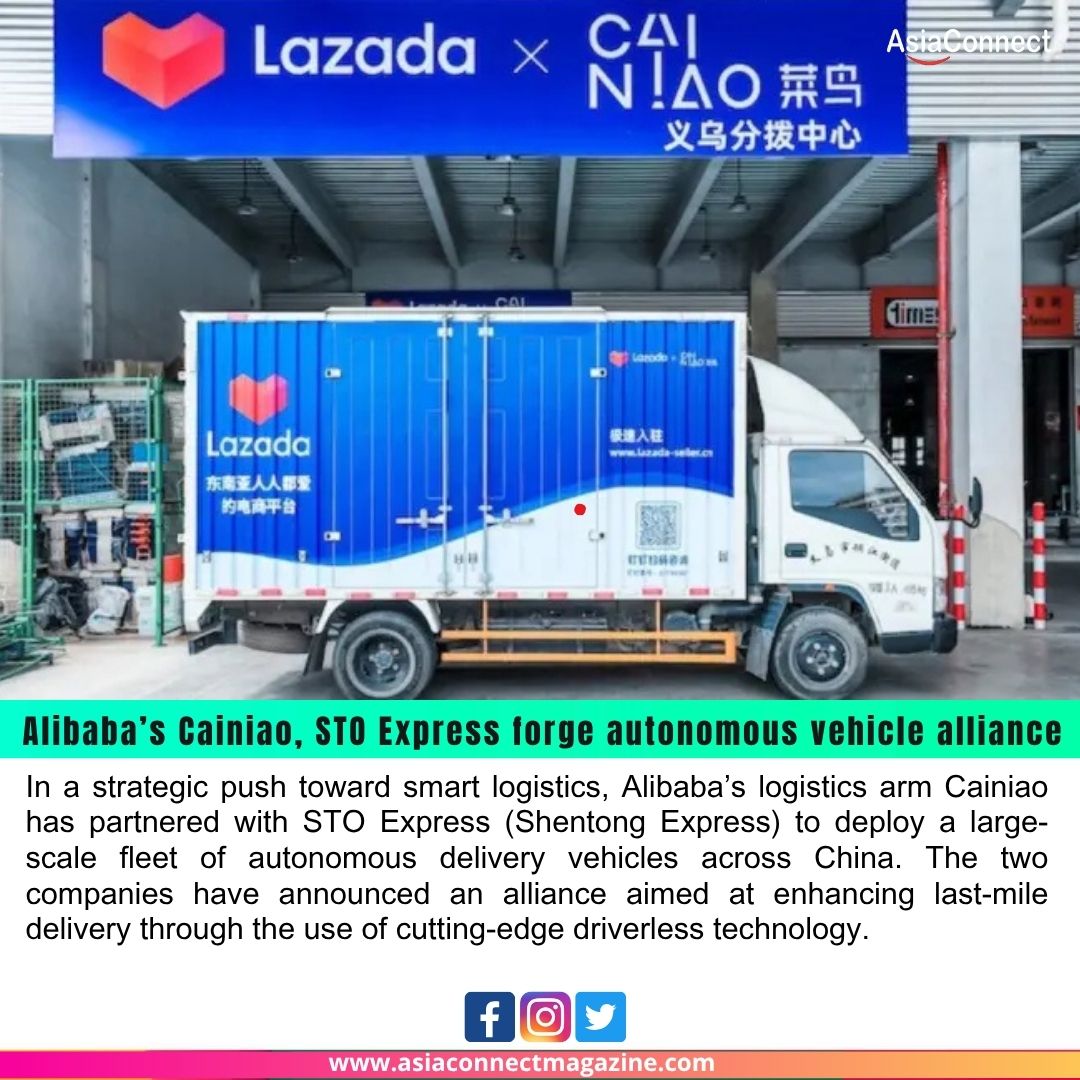In a strategic push toward smart logistics, Alibaba’s logistics arm Cainiao has partnered with STO Express (Shentong Express) to deploy a large-scale fleet of autonomous delivery vehicles across China. The two companies have announced an alliance aimed at enhancing last-mile delivery through the use of cutting-edge driverless technology.
As part of the collaboration, STO Express plans to deploy 2,000 autonomous delivery vehicles by the end of 2025, marking a major milestone in China’s rapidly evolving logistics and e-commerce sector.
Transforming Last-Mile Delivery with Autonomous Vehicles
The integration of autonomous delivery vehicles is set to transform the last-mile delivery experience, a crucial segment of the supply chain. Cainiao, known for its advanced logistics technologies and global network, will provide the technological backbone for this initiative. The autonomous vehicles will be powered by AI, real-time data analytics, and cloud-based logistics management platforms.
The vehicles are designed to navigate complex urban and suburban environments with high efficiency, ensuring faster and more reliable delivery of packages to consumers. This initiative is aligned with Alibaba’s broader vision of building an intelligent, automated logistics ecosystem that reduces human intervention while increasing operational speed and accuracy.
Why This Alliance Matters
The partnership between Cainiao and STO Express is significant for several reasons:
- Scalability: Deploying 2,000 autonomous vehicles is one of the most ambitious efforts in China’s logistics industry to date.
- Efficiency Gains: The alliance aims to reduce delivery time, lower operational costs, and increase customer satisfaction.
- Sustainability: Many of the autonomous vehicles are expected to be electric, contributing to Alibaba’s green logistics goals by cutting emissions.
- Innovation Leadership: The move places Cainiao and STO Express at the forefront of smart logistics innovation in Asia.
This collaboration also demonstrates how legacy courier services like STO are transforming themselves into tech-forward service providers through strategic alliances with companies like Alibaba.
Meeting the Rising Demand for E-Commerce Logistics
The demand for faster and more efficient delivery solutions has soared with the growth of e-commerce, especially in the post-pandemic era. Consumers now expect same-day or even one-hour delivery options, which require automation at every stage of the supply chain.
Autonomous vehicles offer a scalable solution to meet this demand, especially in urban areas where traffic congestion and labor shortages pose significant challenges.
What Lies Ahead
With the deployment plan extending through 2025, the first wave of autonomous vehicles is expected to begin operations in key Chinese cities by early 2026. If successful, this initiative could serve as a blueprint for similar rollouts across Asia and even globally.
Moreover, this partnership sets the stage for more innovation in areas such as unmanned warehouses, robotic sorting centers, and drone deliveries—all part of Alibaba and Cainiao’s long-term logistics vision.
Conclusion
The alliance between Cainiao and STO Express is a bold step toward the future of autonomous logistics. By aiming to deploy 2,000 autonomous delivery vehicles by 2025, the two companies are not only responding to the increasing demands of e-commerce but are also shaping the next era of smart, sustainable, and efficient logistics solutions in China and beyond.





